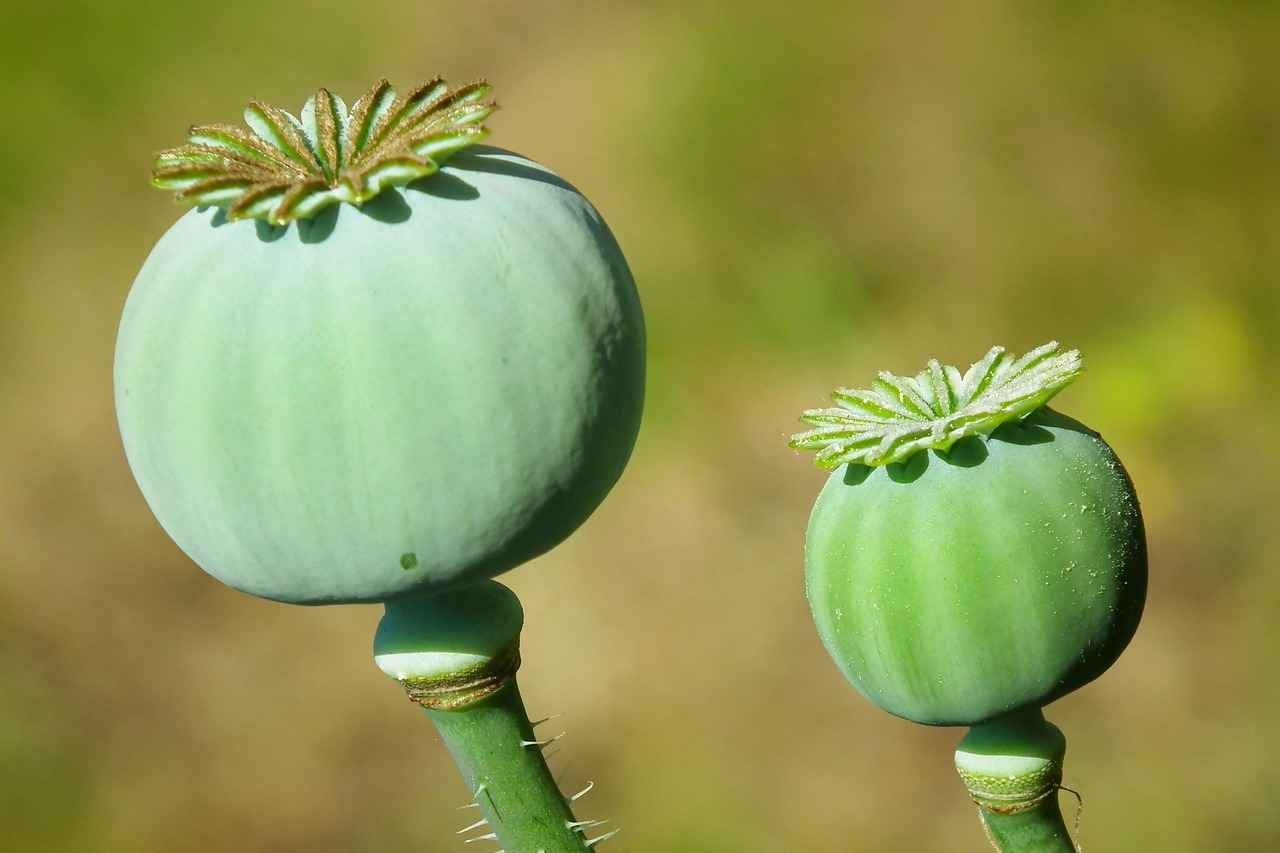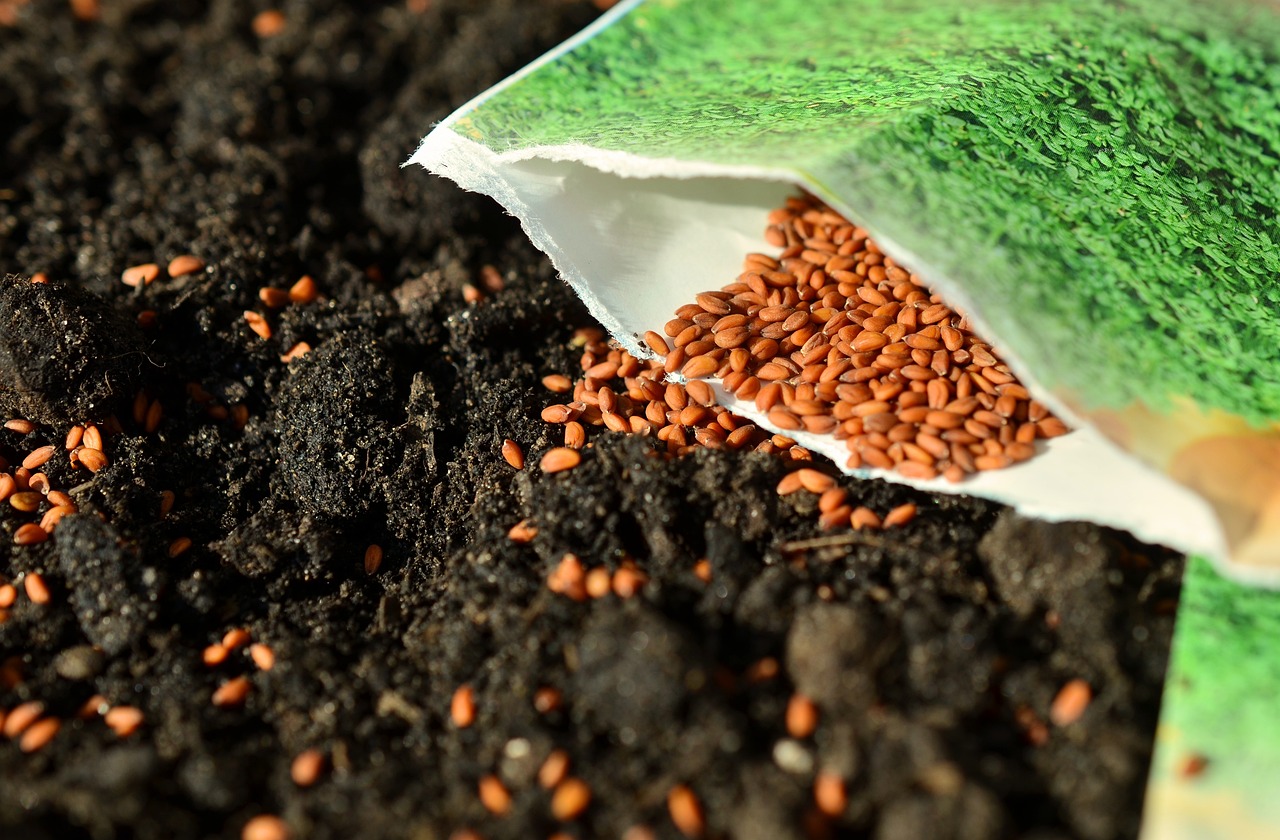Chia seeds, derived from the Salvia hispanica plant, have gained immense popularity as a superfood due to their remarkable health benefits and impressive nutritional profile. This tiny seed packs a powerful punch, offering a wealth of nutrients that contribute to overall wellness. In this guide, we will explore the myriad health benefits of chia seeds, their nutritional content, and practical ways to incorporate them into your daily diet.
Chia seeds are small, oval-shaped seeds that come in black or white varieties. They are rich in essential nutrients and have been used for centuries by ancient civilizations for their health benefits. Chia seeds are particularly known for their high levels of omega-3 fatty acids, fiber, and antioxidants.
Chia seeds are often labeled as a superfood because they are incredibly nutrient-dense. They contain:
- Omega-3 Fatty Acids: Essential for heart health.
- Fiber: Promotes digestive health and aids in weight management.
- Antioxidants: Help combat oxidative stress in the body.
One of the most significant benefits of chia seeds is their ability to support heart health. The omega-3 fatty acids found in chia seeds help reduce inflammation and lower cholesterol levels, which can lead to a healthier heart.
Chia seeds can be an effective addition to a weight loss regimen. Their high fiber content helps promote a feeling of fullness, which can reduce overall calorie intake. When consumed, chia seeds absorb water and expand in the stomach, creating a gel-like substance that aids in satiety.
Chia seeds are not just rich in omega-3 fatty acids; they also provide a variety of essential nutrients:
- Protein: A great plant-based source for vegetarians and vegans.
- Calcium: Important for bone health.
- Magnesium: Supports muscle and nerve function.
The high fiber content in chia seeds is beneficial for digestive health. They help promote regular bowel movements and prevent constipation. Additionally, chia seeds act as prebiotics, nourishing beneficial gut bacteria and contributing to a healthier digestive system.
While chia seeds offer numerous health benefits, it is essential to be aware of potential risks. Some individuals may experience digestive issues if they consume chia seeds without adequate hydration. It is crucial to drink plenty of water when incorporating chia seeds into your diet.
Incorporating chia seeds into your diet is simple and versatile. Here are some practical tips:
- Add chia seeds to smoothies for an extra nutrient boost.
- Sprinkle them on salads or yogurt for added texture.
- Use them in baking to enhance the nutritional value of your favorite recipes.
With their impressive nutritional profile and numerous health benefits, chia seeds are a valuable addition to any diet. By understanding how to incorporate them effectively, you can enjoy their benefits and enhance your overall wellness.
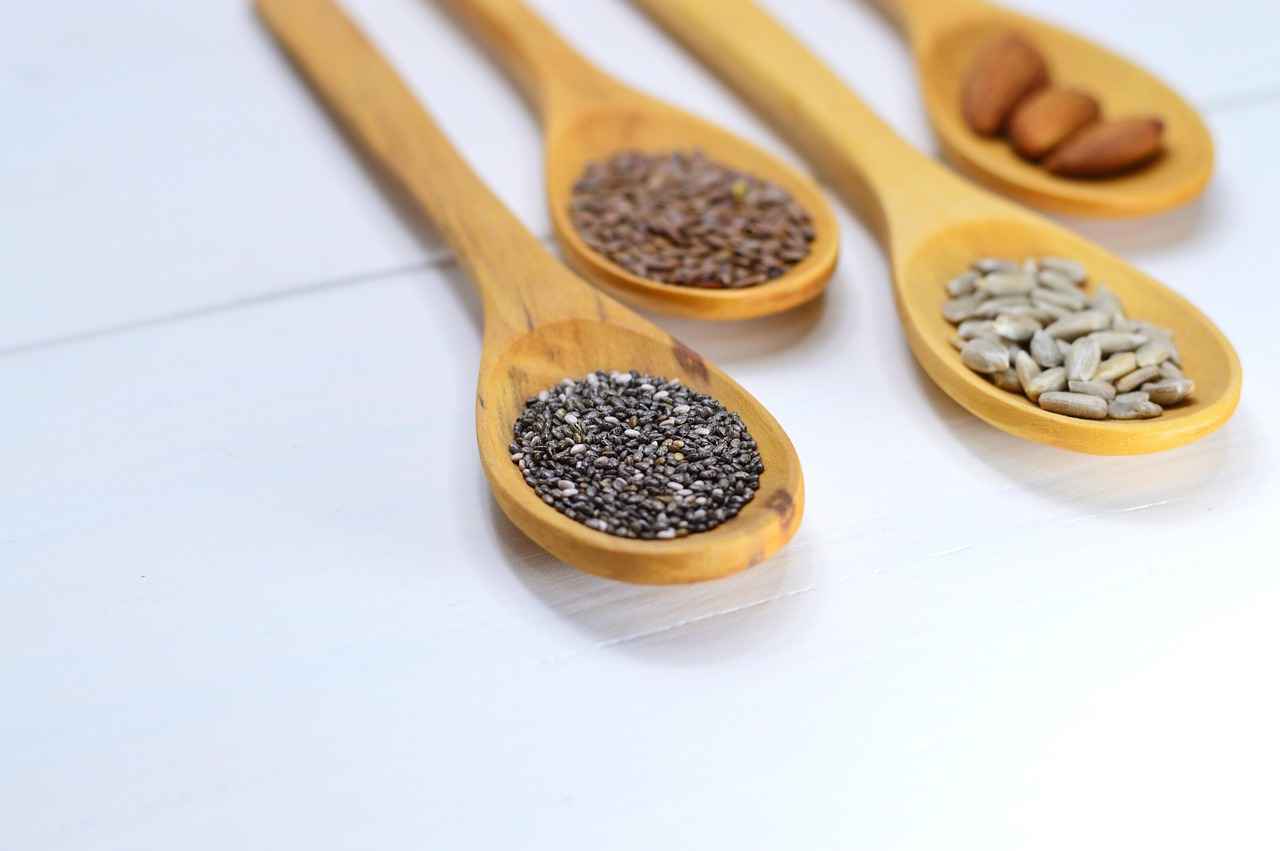
What Are Chia Seeds?
Chia seeds are tiny, yet nutrient-dense seeds that come from the Salvia hispanica plant, which is native to Central America. These seeds have gained immense popularity in recent years, often hailed as a superfood due to their rich nutritional profile and numerous health benefits. In this section, we will explore what chia seeds are, their origins, and why they have become a staple in health-conscious diets.
Chia seeds are small, oval-shaped seeds that can be black, white, or brown in color. They are renowned for their ability to absorb water, expanding up to 12 times their weight when soaked. This unique property not only makes them a versatile ingredient but also contributes to their health benefits. Chia seeds are packed with essential nutrients, making them a valuable addition to any diet.
Chia seeds are often categorized as a superfood due to their impressive nutrient density. They are rich in:
- Omega-3 Fatty Acids: Essential for heart health and reducing inflammation.
- Dietary Fiber: Promotes digestive health and aids in weight management.
- Protein: A plant-based source that supports muscle repair and growth.
- Vitamins and Minerals: Including calcium, magnesium, and phosphorus, which are crucial for bone health.
- Antioxidants: Help combat oxidative stress and inflammation in the body.
The health benefits of chia seeds extend beyond just their nutritional content. Regular consumption can lead to:
- Improved Heart Health: The omega-3 fatty acids in chia seeds help lower cholesterol levels and reduce the risk of heart disease.
- Weight Management: Their high fiber content promotes a feeling of fullness, which can help control appetite and reduce calorie intake.
- Enhanced Digestive Health: Chia seeds support regular bowel movements and can help prevent constipation.
- Bone Strength: The calcium and magnesium in chia seeds contribute to maintaining strong bones.
Incorporating chia seeds into your daily routine is simple and versatile. Here are some popular ways to enjoy them:
- Chia Pudding: Mix chia seeds with milk or a milk alternative and let them soak overnight for a delicious breakfast or snack.
- Smoothies: Blend chia seeds into your favorite smoothie for added nutrition.
- Salads: Sprinkle chia seeds on salads for a crunchy texture and nutritional boost.
- Baking: Add them to muffins, bread, or energy bars to enhance their health benefits.
With their myriad health benefits and easy incorporation into meals, chia seeds are a fantastic addition to a balanced diet. Their nutrient density and versatility make them a go-to choice for those seeking to improve their overall health and wellness.
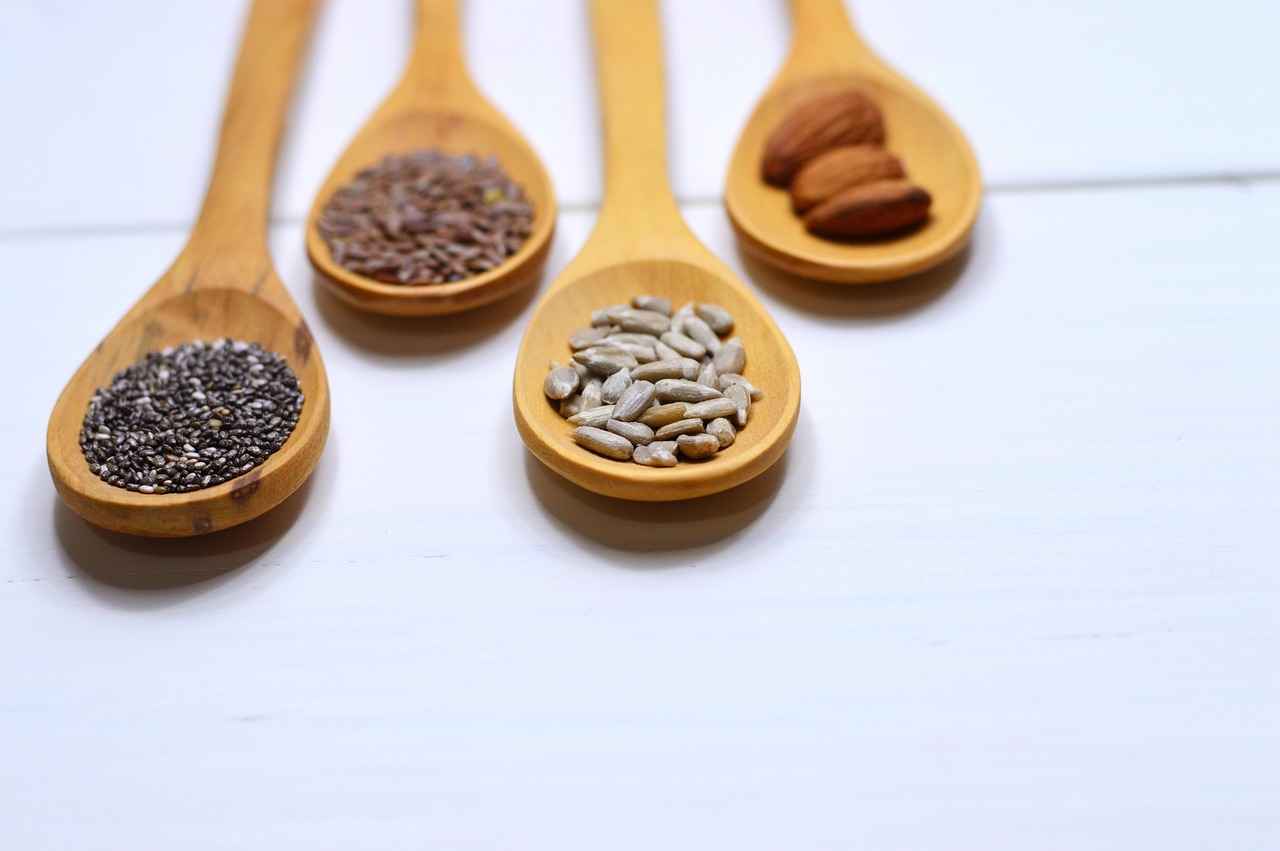
Why Are Chia Seeds Considered a Superfood?
Chia seeds have gained immense popularity in recent years, often earning the title of a superfood. This designation stems from their impressive nutritional profile and numerous health benefits. But what exactly makes these tiny seeds so extraordinary?
Chia seeds are rich in several essential nutrients that contribute to their status as a superfood. These include:
- Omega-3 Fatty Acids: Chia seeds are one of the best plant-based sources of omega-3 fatty acids, which are crucial for heart health and reducing inflammation.
- Fiber: With a whopping 34 grams of fiber per 100 grams, chia seeds support digestive health and help maintain a feeling of fullness.
- Antioxidants: These seeds are loaded with antioxidants that help combat oxidative stress and protect the body from chronic diseases.
- Protein: Chia seeds provide a significant amount of protein, making them an excellent addition to vegetarian and vegan diets.
- Minerals: They are high in calcium, magnesium, and phosphorus, all of which are essential for bone health.
The combination of these nutrients contributes to various health benefits:
- Heart Health: The omega-3 fatty acids in chia seeds help lower cholesterol levels and reduce the risk of heart disease.
- Weight Management: The high fiber content aids in digestion and promotes satiety, which can help control appetite and support weight loss.
- Bone Health: The calcium and magnesium in chia seeds contribute to stronger bones and may help prevent osteoporosis.
- Blood Sugar Control: Chia seeds can help stabilize blood sugar levels, making them beneficial for individuals with diabetes.
Incorporating chia seeds into your meals is simple and versatile:
- Chia Pudding: Mix chia seeds with milk or a dairy-free alternative and let them soak overnight for a delicious breakfast or snack.
- Smoothies: Add a tablespoon of chia seeds to your favorite smoothie for an extra nutrient boost.
- Baking: Incorporate chia seeds into bread, muffins, or energy bars for added texture and nutrition.
- Salads: Sprinkle chia seeds on salads for a crunchy topping.
While chia seeds are generally safe for most people, there are some considerations:
- Hydration: Due to their high fiber content, it’s important to consume chia seeds with plenty of water to avoid digestive discomfort.
- Allergic Reactions: Some individuals may experience allergic reactions; those with known seed allergies should exercise caution.
In summary, chia seeds are indeed a superfood, packed with essential nutrients that promote overall health and wellness. Their versatility in the kitchen makes them easy to incorporate into various meals, providing a delicious and nutritious boost to your diet.
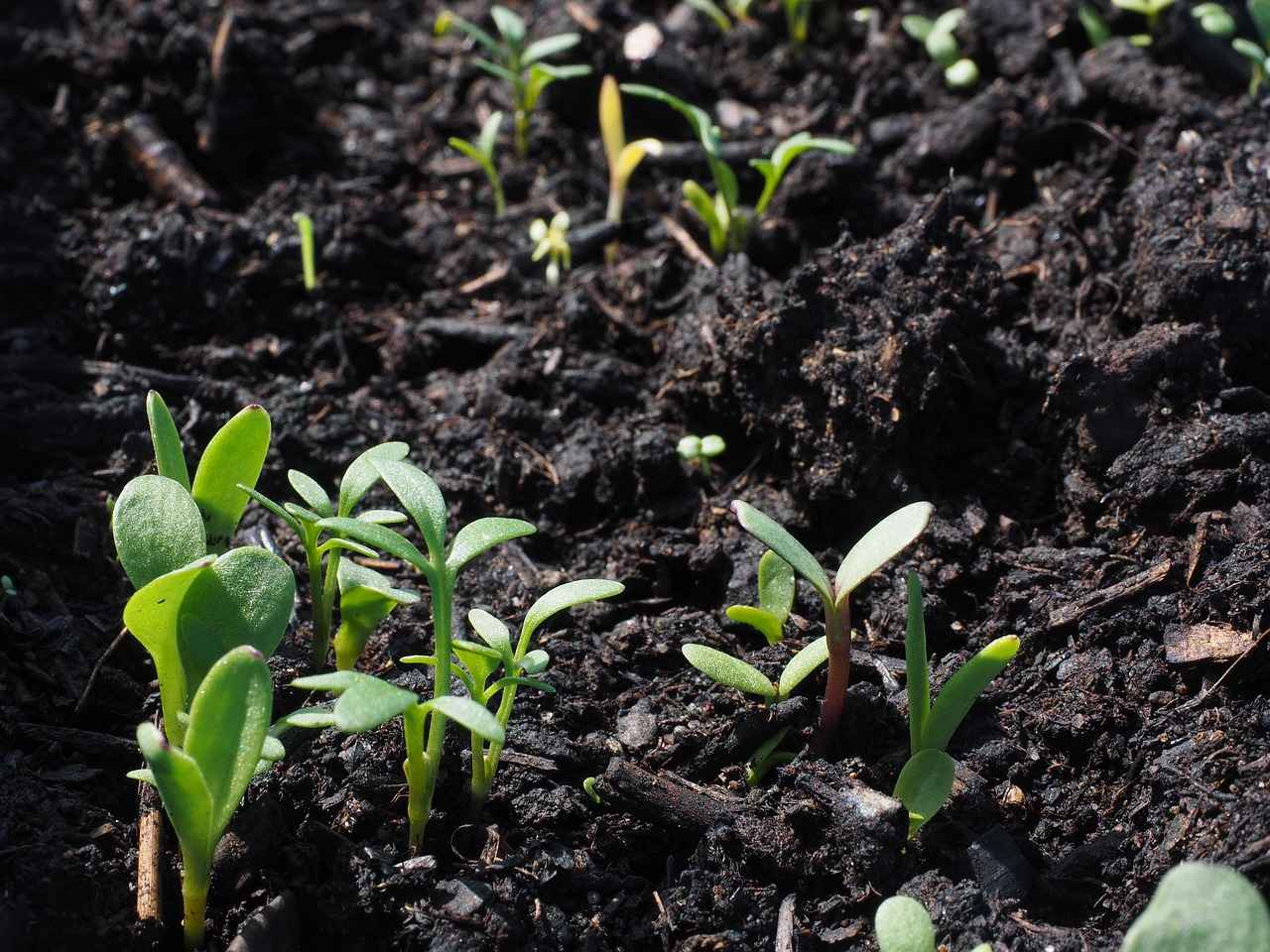
How Do Chia Seeds Contribute to Heart Health?
Chia seeds have gained popularity in recent years, not only as a nutritious addition to meals but also for their significant health benefits. One of the most noteworthy advantages of chia seeds is their positive impact on heart health. This section delves into how chia seeds contribute to a healthier heart and why they should be included in your daily diet.
Chia seeds are particularly beneficial for heart health due to their high content of omega-3 fatty acids. These essential fatty acids play a crucial role in reducing inflammation and promoting cardiovascular well-being. Omega-3s are known to help lower cholesterol levels, which is vital for maintaining a healthy heart.
Omega-3 fatty acids are a type of polyunsaturated fat that is essential for human health. They are known to improve lipid profiles by increasing high-density lipoprotein (HDL) cholesterol while lowering low-density lipoprotein (LDL) cholesterol. This balance is key in reducing the risk of heart disease. Chia seeds are one of the richest plant-based sources of omega-3s, specifically in the form of alpha-linolenic acid (ALA).
Regular consumption of chia seeds has been linked to lower blood pressure levels. Studies suggest that the combination of omega-3 fatty acids, fiber, and antioxidants in chia seeds can lead to improved blood vessel function and reduced arterial stiffness. This effect can significantly lower blood pressure, making chia seeds a valuable addition to a heart-healthy diet.
Chronic inflammation is a significant contributor to heart disease. The omega-3 fatty acids in chia seeds have anti-inflammatory properties that can help reduce markers of inflammation in the body. By incorporating chia seeds into your diet, you can potentially lower your risk of developing heart-related issues linked to inflammation.
- Add to Smoothies: Blend chia seeds into your morning smoothie for an extra boost of nutrients.
- Top Your Salads: Sprinkle chia seeds on salads to enhance texture and nutritional value.
- Baking: Use chia seeds in baking recipes, such as muffins or bread, to increase fiber and omega-3 content.
- Chia Pudding: Make a delicious chia pudding by soaking seeds in almond milk and adding fruits for flavor.
While chia seeds are generally safe for most people, it is essential to consume them in moderation. Some individuals may experience digestive discomfort if they consume large quantities without sufficient hydration. It is advisable to drink plenty of water when incorporating chia seeds into your diet.
In summary, chia seeds offer a plethora of benefits for heart health, primarily due to their rich omega-3 fatty acid content. By reducing inflammation, lowering cholesterol levels, and aiding in blood pressure management, these tiny seeds can have a significant impact on your cardiovascular well-being. Incorporating chia seeds into your daily meals can be a simple and effective way to support a healthy heart.
Omega-3 Fatty Acids Explained
Omega-3 fatty acids are essential fats that our bodies cannot produce on their own, making it crucial to obtain them through our diet. These fatty acids are primarily found in fish, flaxseeds, and chia seeds, which are increasingly recognized for their health benefits. Among the various types of omega-3s, the most notable are alpha-linolenic acid (ALA), eicosapentaenoic acid (EPA), and docosahexaenoic acid (DHA). Chia seeds are particularly rich in ALA, which has been linked to numerous health benefits.
Research indicates that omega-3 fatty acids play a crucial role in reducing the risk of heart disease. They achieve this by improving lipid profiles, which include lowering triglycerides and increasing high-density lipoprotein (HDL) cholesterol levels. This shift in lipid levels is vital because high triglyceride levels are a significant risk factor for heart disease.
Furthermore, omega-3 fatty acids have been shown to help lower blood pressure, particularly in individuals with hypertension. Consuming chia seeds regularly can contribute to a heart-healthy diet, as they are a plant-based source of these essential fats. A study published in the American Journal of Clinical Nutrition found that participants who increased their omega-3 intake experienced a notable reduction in blood pressure levels.
- Anti-Inflammatory Properties: Omega-3 fatty acids possess anti-inflammatory properties, which can help reduce chronic inflammation—a known contributor to various heart conditions.
- Improved Endothelial Function: Omega-3s support the function of the endothelium, the thin layer of cells lining the blood vessels, enhancing vascular health.
- Reduced Risk of Arrhythmias: Regular intake of omega-3s has been associated with a lower risk of arrhythmias, which can lead to sudden cardiac arrest.
In addition to heart health, omega-3 fatty acids are beneficial for brain health. They contribute to cognitive function and may help reduce the risk of neurodegenerative diseases. Studies suggest that ALA can support brain health by promoting the growth of new neurons and protecting against oxidative stress.
To maximize the benefits of omega-3 fatty acids from chia seeds, it is essential to incorporate them into your daily diet. Here are some practical suggestions:
- Add chia seeds to smoothies for a nutrient boost.- Sprinkle them on salads for added crunch and nutrition.- Use chia seeds in baking recipes, such as muffins or bread.
In conclusion, incorporating chia seeds into your diet can significantly enhance your omega-3 intake, contributing to improved heart and brain health. By understanding the role of these essential fatty acids, you can make informed dietary choices that promote overall wellness.
Chia Seeds and Blood Pressure Management
Chia seeds have gained considerable attention in the health community, particularly for their potential benefits in blood pressure management. As a rich source of nutrients, these tiny seeds provide a variety of health advantages, making them a staple in many heart-healthy diets.
Research suggests that regular consumption of chia seeds may contribute to lowering blood pressure. This is primarily attributed to their high content of omega-3 fatty acids, which are known for their anti-inflammatory properties. By reducing inflammation, chia seeds can help improve vascular function, thereby supporting healthy blood pressure levels.
Chia seeds are packed with essential nutrients, including:
- Omega-3 Fatty Acids: These healthy fats are crucial for heart health and may help lower triglycerides.
- Dietary Fiber: The soluble fiber in chia seeds can help regulate cholesterol levels and improve overall cardiovascular health.
- Antioxidants: These compounds can combat oxidative stress, which is linked to various chronic diseases, including hypertension.
The omega-3 fatty acids found in chia seeds, particularly alpha-linolenic acid (ALA), play a significant role in heart health. Studies have shown that ALA can:
- Reduce blood pressure by improving blood vessel function.
- Lower levels of bad cholesterol (LDL) while increasing good cholesterol (HDL).
- Decrease inflammation, which is a contributing factor to high blood pressure.
Adding chia seeds to your meals is simple and versatile. Here are some easy ways to include them in your diet:
- Chia Pudding: Mix chia seeds with your choice of milk or yogurt, let it sit overnight, and enjoy a nutritious breakfast.
- Smoothies: Blend chia seeds into your favorite smoothies for an added nutrient boost.
- Baking: Incorporate chia seeds into muffins, bread, or energy bars for extra fiber and omega-3s.
To reap the heart health benefits, a daily intake of 1 to 2 tablespoons of chia seeds is often recommended. However, it’s essential to gradually introduce them into your diet to avoid digestive discomfort.
While chia seeds are generally safe for most individuals, consuming them in excessive amounts may lead to digestive issues such as bloating or gas. It’s crucial to stay hydrated when consuming chia seeds, as they absorb water and expand in the stomach.
Incorporating chia seeds into your diet can be a delicious and effective way to support blood pressure management. With their rich nutrient profile and heart-healthy benefits, these tiny seeds can play a significant role in maintaining overall wellness. As always, consult with a healthcare provider before making significant dietary changes, especially if you have existing health conditions.
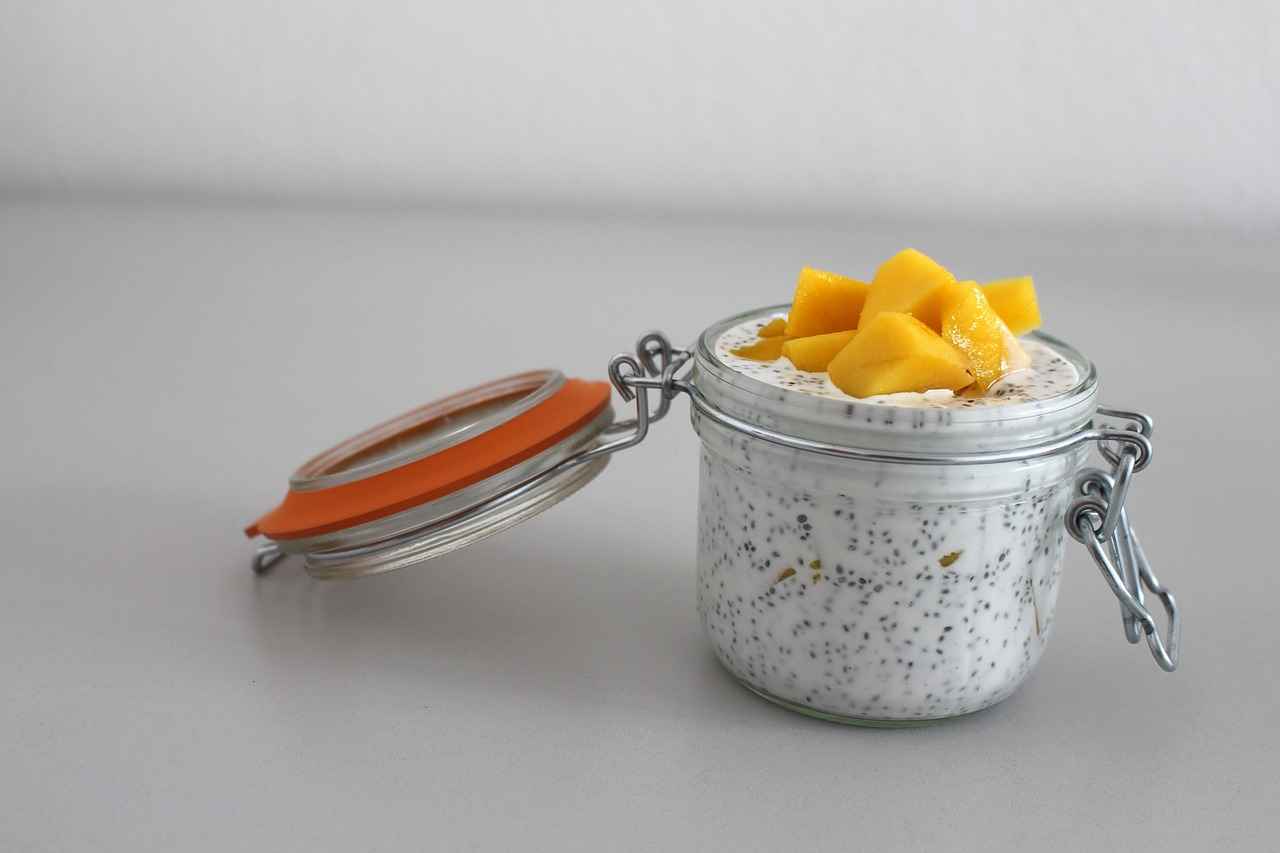
Can Chia Seeds Aid in Weight Loss?
Chia seeds have gained popularity in recent years as a powerful superfood, particularly for those looking to manage their weight effectively. These tiny seeds are packed with nutrients and offer a variety of health benefits, making them an ideal addition to a weight loss regimen. One of the key factors contributing to their effectiveness in weight management is their exceptionally high fiber content.
The soluble fiber found in chia seeds plays a crucial role in promoting a feeling of fullness. When chia seeds come into contact with liquid, they absorb up to 12 times their weight in water, forming a gel-like substance. This expansion in the stomach can help to significantly increase satiety, leading to reduced hunger and a decreased likelihood of overeating.
By incorporating chia seeds into your meals, you can naturally lower your overall calorie consumption. The fiber content not only keeps you feeling full but also slows down the digestion process, allowing for a more gradual release of energy. This steady energy release can help stabilize blood sugar levels, which is essential for preventing those mid-afternoon cravings that often lead to unhealthy snacking.
- Chia Pudding: Combine chia seeds with your choice of milk or yogurt and let it sit overnight. This makes for a nutritious breakfast or snack.
- Smoothies: Add a tablespoon of chia seeds to your favorite smoothie for an extra boost of fiber and nutrients.
- Salads and Soups: Sprinkle chia seeds on salads or mix them into soups for added texture and nutritional value.
In addition to aiding in weight loss, chia seeds are rich in omega-3 fatty acids, which are essential for heart health. Their high antioxidant content also helps combat oxidative stress in the body. This means that while you are working towards your weight management goals, you are also supporting your overall health.
While chia seeds offer numerous benefits, it is essential to consume them in moderation. Some individuals may experience digestive discomfort if they consume too many seeds without adequate hydration. Always make sure to drink plenty of water when incorporating chia seeds into your diet to avoid any potential digestive issues.
In summary, chia seeds can be a valuable ally in your weight management journey. Their high fiber content promotes satiety, reduces overall calorie intake, and provides additional health benefits. By incorporating these tiny seeds into your diet, you can enjoy a nutritious and satisfying way to support your weight loss goals.
How Fiber Affects Weight Loss
Understanding the role of fiber in weight loss can significantly impact your dietary choices. Among the various types of fiber, soluble fiber has garnered attention for its unique properties that aid in weight management. Chia seeds, which are a rich source of soluble fiber, have become a popular addition to many health-conscious diets.
When chia seeds are consumed, they absorb water and expand in the stomach, creating a gel-like substance. This expansion plays a crucial role in promoting a feeling of fullness, which can help reduce overall caloric intake. By making you feel satisfied sooner, chia seeds can prevent overeating and snacking between meals, which are common pitfalls in weight management.
Moreover, the soluble fiber found in chia seeds slows down the digestion process. This means that the release of glucose into the bloodstream is gradual, helping to maintain stable blood sugar levels. When blood sugar levels are stable, cravings for sugary snacks can decrease, further supporting weight loss efforts.
Incorporating chia seeds into your diet is simple and versatile. Here are some effective ways to include them:
- Chia Pudding: Soak chia seeds in almond milk or yogurt overnight for a nutritious breakfast or snack.
- Smoothies: Blend chia seeds into your favorite smoothie for an added fiber boost.
- Baking: Use chia seeds in baked goods like muffins or bread to enhance fiber content.
In addition to their appetite-suppressing qualities, chia seeds also provide other health benefits that can support weight loss. They are rich in omega-3 fatty acids, which have been shown to reduce inflammation and improve metabolic health. A healthy metabolism is essential for effective weight management, as it determines how efficiently your body burns calories.
Research has indicated that individuals who consume a high-fiber diet tend to have lower body weight and a reduced risk of obesity. This correlation is attributed not only to the satiating effects of fiber but also to its ability to improve gut health. A healthy gut microbiome can influence weight by regulating hormones related to appetite and metabolism.
However, it is important to consume chia seeds in moderation and ensure adequate hydration, as excessive fiber intake without sufficient water can lead to digestive discomfort. Start with a small amount, such as one tablespoon per day, and gradually increase your intake as your body adjusts.
In conclusion, the soluble fiber in chia seeds is a powerful ally in weight loss. By promoting satiety, stabilizing blood sugar levels, and improving digestive health, chia seeds can be an effective component of a balanced diet aimed at achieving and maintaining a healthy weight. Incorporating these tiny seeds into your meals may not only enhance your nutrition but also support your weight loss goals in a sustainable way.
Incorporating Chia Seeds into Your Diet
Incorporating chia seeds into your diet is not only simple but also incredibly beneficial for your overall health. These tiny seeds are a powerhouse of nutrients, making them an excellent addition to a variety of meals. Below, we explore several easy and creative ways to include chia seeds in your daily meals.
There are numerous ways to incorporate chia seeds into your diet, ensuring that you enjoy their health benefits without compromising on taste. Here are some popular methods:
- Sprinkling on Salads: A simple way to enhance the nutritional value of your salads is by sprinkling a tablespoon of chia seeds on top. They add a delightful crunch and boost the fiber content.
- Blending into Smoothies: Chia seeds can easily be blended into smoothies. Just add a tablespoon to your favorite smoothie ingredients for an added dose of omega-3 fatty acids and protein.
- Using in Baking: Incorporate chia seeds into your baking recipes. They can be added to muffins, bread, and pancakes, increasing the nutritional profile of your baked goods.
- Making Chia Pudding: Chia pudding is a popular dish that is both nutritious and delicious. Simply mix chia seeds with your choice of milk or yogurt and let it sit overnight. In the morning, add fruits, nuts, or honey for a tasty breakfast.
- Adding to Oatmeal: Stirring chia seeds into your morning oatmeal not only enhances the texture but also provides a significant boost in nutrients.
- Creating Energy Bars: Homemade energy bars can be made by combining nuts, seeds, and chia seeds for a healthy snack that keeps you energized throughout the day.
Including chia seeds in your diet offers a multitude of health benefits. They are rich in fiber, which aids digestion, and they are also a great source of protein and essential fatty acids. This combination can help in weight management by promoting a feeling of fullness, thereby reducing overall calorie intake.
Additionally, chia seeds are packed with antioxidants, which help combat oxidative stress and inflammation in the body. Their high mineral content, including calcium, magnesium, and phosphorus, supports bone health and overall wellness.
To maximize the benefits of chia seeds, consider the following tips:
- Hydrate: Always soak chia seeds in water or another liquid before consuming them. This not only enhances their digestibility but also helps prevent any digestive discomfort.
- Start Small: If you are new to chia seeds, start with a small amount and gradually increase your intake to allow your body to adjust.
- Store Properly: Keep chia seeds in a cool, dry place in an airtight container to maintain their freshness and nutritional value.
Incorporating chia seeds into your diet is straightforward and can significantly enhance your meals’ nutritional profile. By exploring these various methods, you can easily enjoy the many health benefits that chia seeds offer.
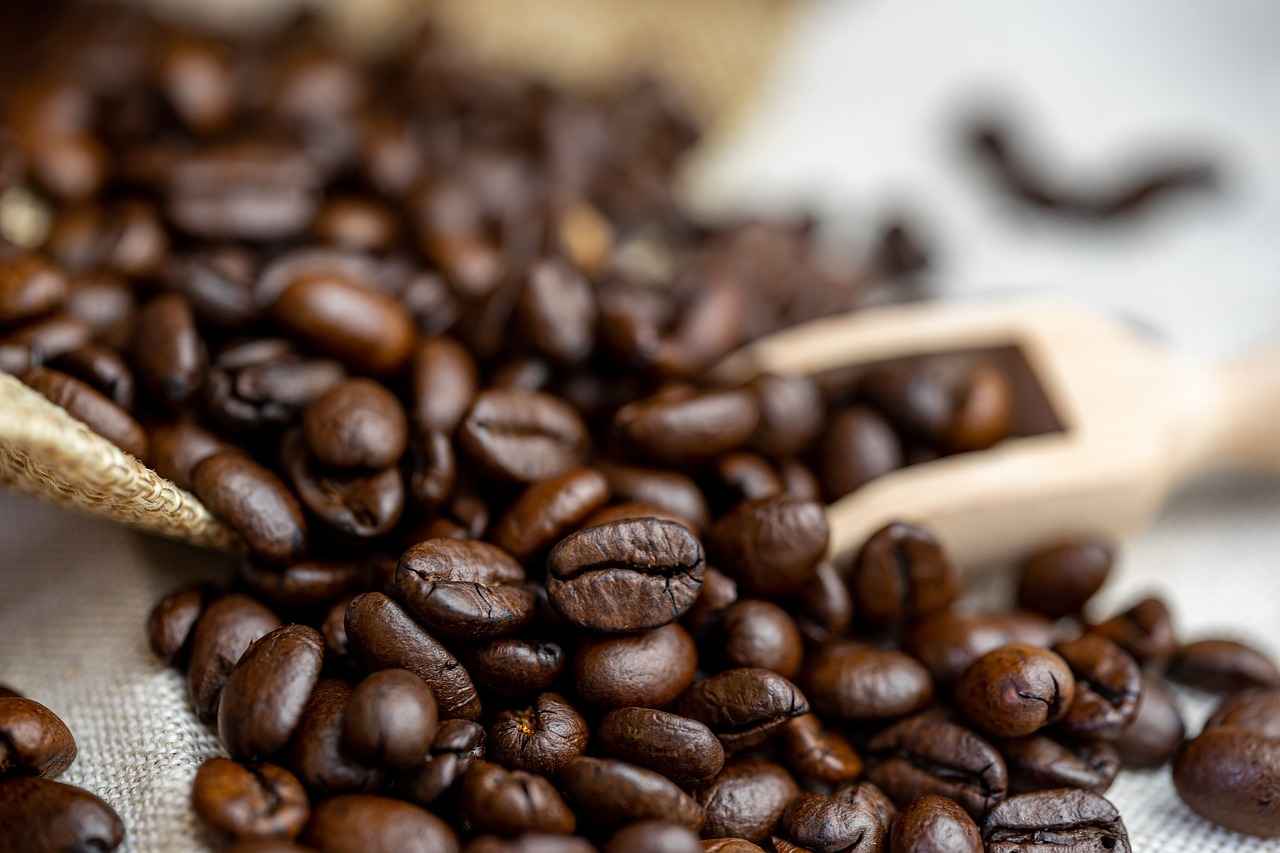
What Nutrients Are Found in Chia Seeds?
Chia seeds are a powerhouse of nutrition, making them a popular choice for health enthusiasts around the globe. These tiny seeds are derived from the Salvia hispanica plant and are packed with essential nutrients that can significantly benefit your overall health. In this section, we will explore the various nutrients found in chia seeds and why they are considered a valuable addition to any diet.
Chia seeds are rich in a variety of essential nutrients, including:
- Protein: Chia seeds contain about 4 grams of protein per 2 tablespoons, making them an excellent plant-based protein source.
- Calcium: With approximately 18% of the recommended daily intake in just one ounce, chia seeds support bone health.
- Magnesium: These seeds provide about 24% of the daily magnesium requirement, crucial for numerous bodily functions.
- Omega-3 Fatty Acids: Chia seeds are one of the richest plant sources of omega-3s, which are vital for heart health.
- Antioxidants: Chia seeds are loaded with antioxidants that help fight oxidative stress and inflammation.
- Fiber: They are an excellent source of dietary fiber, with about 11 grams per ounce, which aids in digestion.
The protein found in chia seeds is particularly beneficial for individuals following a vegetarian or vegan diet. It contains all nine essential amino acids, making it a complete protein source. This is especially important for muscle repair and growth, and it helps keep you feeling full longer, which can aid in weight management.
Calcium is crucial for maintaining strong bones and teeth. The calcium content in chia seeds can be particularly beneficial for those who do not consume dairy products. Regular intake can help prevent osteoporosis and support overall bone health.
Magnesium plays a vital role in over 300 enzymatic reactions in the body, including energy production and muscle function. Adequate magnesium intake can help reduce the risk of chronic diseases such as diabetes and heart disease.
Omega-3 fatty acids are known for their anti-inflammatory properties and are essential for heart health. They help lower cholesterol levels and improve overall cardiovascular function. Chia seeds provide a plant-based source of these beneficial fats, making them an excellent choice for those looking to enhance their heart health without consuming fish.
Antioxidants in chia seeds help combat oxidative stress caused by free radicals. This protection is crucial in reducing the risk of chronic diseases and promoting overall health. The presence of antioxidants also contributes to the seeds’ long shelf life.
The high fiber content in chia seeds promotes healthy digestion by supporting regular bowel movements and preventing constipation. Fiber also plays a role in maintaining a healthy gut microbiome, as it acts as a prebiotic, feeding beneficial gut bacteria.
Incorporating chia seeds into your diet is simple and versatile. You can add them to smoothies, yogurt, or oatmeal, or use them as a thickening agent in recipes. With their impressive nutrient profile, chia seeds are indeed a valuable addition to any health-conscious diet.
Protein Content of Chia Seeds
Chia seeds, derived from the Salvia hispanica plant, are increasingly recognized as a valuable source of plant-based protein. This makes them particularly beneficial for vegetarians and vegans who are striving to meet their daily protein requirements without relying on animal products.
One of the most remarkable aspects of chia seeds is their protein content, which constitutes about 20% of their total weight. This is significant compared to many other seeds and grains. A 28-gram (one ounce) serving of chia seeds contains approximately 4 grams of protein, making them a great addition to a balanced diet.
In addition to being a good source of protein, chia seeds are also rich in essential amino acids. Unlike many plant proteins, which are often deficient in one or more amino acids, chia seeds provide a complete protein profile. This means they contain all nine essential amino acids that the human body cannot produce on its own. This quality makes them an excellent alternative for individuals who do not consume animal products.
Why is Protein Important?
- Protein is essential for building and repairing tissues in the body.
- It plays a critical role in producing enzymes and hormones.
- Protein helps maintain muscle mass, especially important for those engaging in regular physical activity.
For vegetarians and vegans, meeting protein needs can sometimes be a challenge. However, incorporating chia seeds into the diet can help bridge this gap. They can be easily added to various dishes such as:
- Smoothies: Blend chia seeds into your favorite smoothie for an added protein boost.
- Salads: Sprinkle chia seeds on salads for a crunchy texture and extra nutrients.
- Baking: Use chia seeds in baked goods like muffins and bread to enhance their nutritional profile.
Moreover, chia seeds are not just about protein; they also offer other vital nutrients. They are an excellent source of dietary fiber, omega-3 fatty acids, and various minerals such as calcium and magnesium. This combination of nutrients supports overall health and wellness, making chia seeds a superfood in their own right.
In summary, the protein content of chia seeds makes them a valuable addition to any diet, particularly for those following plant-based lifestyles. Their versatility allows them to be easily incorporated into a variety of meals, ensuring that individuals can meet their protein needs while enjoying delicious and nutritious food.
Minerals and Antioxidants in Chia Seeds
Chia seeds are not just a trendy health food; they are a powerhouse of essential nutrients that can significantly enhance your overall well-being. Among their many benefits, the high content of minerals such as calcium and magnesium plays a crucial role in maintaining strong bones and optimal bodily functions. Additionally, chia seeds are rich in antioxidants, which help combat oxidative stress and protect the body from cellular damage.
Why Are Calcium and Magnesium Important?
- Calcium is vital for bone health, as it helps in building and maintaining bone density. A deficiency can lead to conditions like osteoporosis.
- Magnesium plays a significant role in over 300 biochemical reactions in the body, including muscle and nerve function, blood glucose control, and blood pressure regulation.
Incorporating chia seeds into your diet can help meet your daily requirements for these essential minerals. Just two tablespoons of chia seeds contain approximately 18% of the recommended daily intake of calcium and 30% of the recommended daily intake of magnesium.
How Do Antioxidants Benefit Your Health?
Antioxidants are compounds that help neutralize free radicals in the body, reducing oxidative stress and inflammation. Chia seeds are loaded with antioxidants, including quercetin, kaempferol, and chlorogenic acid, which have been linked to various health benefits:
- Reducing the risk of chronic diseases such as heart disease and cancer.
- Supporting skin health by combating the effects of aging.
- Enhancing immune function and overall vitality.
How to Maximize Nutrient Absorption from Chia Seeds?
To fully reap the benefits of chia seeds, it’s essential to prepare them correctly. Soaking chia seeds in water or your favorite beverage allows them to expand and form a gel-like consistency, which not only makes them easier to digest but also enhances nutrient absorption. This process can also make them a versatile ingredient in various recipes, from smoothies to puddings.
Practical Tips for Incorporating Chia Seeds into Your Diet
- Add soaked chia seeds to your morning oatmeal or yogurt for a nutritious boost.
- Use them as a thickening agent in soups and sauces.
- Mix chia seeds into your favorite smoothie for added texture and nutrients.
With their impressive profile of minerals and antioxidants, chia seeds are a simple yet effective way to enhance your nutritional intake. By including them in your daily diet, you can support your bone health and protect your body from oxidative stress, leading to improved overall wellness.

How Do Chia Seeds Benefit Digestive Health?
Chia seeds, often hailed as a superfood, offer a plethora of health benefits, particularly when it comes to digestive health. Their remarkable fiber content plays a crucial role in promoting a healthy digestive system, ensuring regular bowel movements, and preventing issues like constipation.
Chia seeds are composed of approximately 34% fiber, making them one of the richest sources of dietary fiber available. This high fiber content is primarily made up of soluble fiber, which absorbs water and expands in the stomach, creating a gel-like substance. This process not only aids in digestion but also enhances feelings of fullness, which can help control appetite.
The soluble fiber in chia seeds acts as a natural laxative. When mixed with liquid, chia seeds swell and form a gel that helps to bulk up stool and facilitate its passage through the digestive tract. This is particularly beneficial for individuals who struggle with irregular bowel movements or constipation. By incorporating chia seeds into your diet, you can help maintain a healthy gut and promote regularity.
In addition to their fiber benefits, chia seeds also serve as prebiotics. Prebiotics are non-digestible food components that nourish beneficial gut bacteria. A healthy gut microbiome is essential for overall digestive health, as it aids in nutrient absorption and boosts the immune system. By supporting the growth of these good bacteria, chia seeds contribute to a balanced gut environment, which can lead to improved digestion and overall health.
- Chia Pudding: Soak chia seeds in your favorite milk or yogurt overnight and enjoy a delicious pudding.
- Smoothies: Add a tablespoon of chia seeds to your morning smoothie for an extra fiber boost.
- Salads: Sprinkle chia seeds over salads for added crunch and nutrition.
- Baking: Incorporate chia seeds into baked goods like muffins or bread for improved texture and health benefits.
While chia seeds are generally safe for most individuals, it’s essential to consume them with adequate liquid intake. Due to their high fiber content, consuming chia seeds without enough water can lead to digestive discomfort. It’s advisable to start with small amounts and gradually increase your intake to allow your digestive system to adjust.
Incorporating chia seeds into your diet can significantly enhance your digestive health. With their high fiber content, ability to promote regular bowel movements, and support for gut health, chia seeds are a simple yet effective addition to any meal. Whether you choose to enjoy them in puddings, smoothies, or salads, these tiny seeds pack a powerful punch for your digestive wellness.
Chia Seeds and Gut Health
Chia seeds have gained significant attention in recent years for their numerous health benefits, particularly in relation to digestive health. One of the most compelling aspects of chia seeds is their role as prebiotics, which are substances that promote the growth of beneficial bacteria in the gut. This article delves into how chia seeds contribute to a healthier digestive system and the overall well-being of individuals.
Prebiotics are non-digestible food components that serve as fuel for the beneficial bacteria residing in our intestines. By nourishing these gut flora, prebiotics support a balanced microbiome, which is crucial for digestive health. A healthy gut microbiome can enhance nutrient absorption, boost the immune system, and even influence mood and mental health.
Chia seeds are rich in soluble fiber, which is essential for gut health. When consumed, this fiber absorbs water and expands, forming a gel-like substance in the digestive tract. This process not only aids in digestion but also creates an optimal environment for beneficial bacteria to thrive. The high fiber content in chia seeds acts as a food source for these bacteria, promoting their growth and activity.
Research has shown that a diet high in fiber, including sources like chia seeds, can lead to an increase in the diversity and abundance of beneficial gut bacteria. This diversity is vital for maintaining gut health, as different strains of bacteria play various roles in digestion and immune function. By incorporating chia seeds into your diet, you can help cultivate a diverse microbiome, which may lead to improved digestion and overall health.
- Regular Bowel Movements: The soluble fiber in chia seeds helps to regulate bowel movements, preventing constipation and promoting a healthy digestive tract.
- Reduced Inflammation: The omega-3 fatty acids found in chia seeds may also help reduce inflammation in the gut, providing relief from digestive discomfort.
- Enhanced Nutrient Absorption: A healthy gut microbiome improves the absorption of nutrients from food, ensuring that your body receives the vitamins and minerals it needs.
Incorporating chia seeds into your daily routine is simple and versatile. Here are some effective ways to enjoy their benefits:
- Add them to smoothies for an extra nutritional boost.
- Sprinkle chia seeds on salads or yogurt for added texture and nutrition.
- Use them in baking, such as in bread or muffins, to increase fiber content.
- Prepare chia pudding by soaking the seeds in milk or plant-based alternatives overnight, creating a delicious and nutritious breakfast or snack.
Chia seeds are a powerhouse of nutrients that can significantly enhance gut health. By acting as prebiotics, they nourish beneficial gut bacteria, promote regular bowel movements, and contribute to a balanced microbiome. Including chia seeds in your diet is a simple yet effective way to support your digestive system and overall health. With their myriad benefits, chia seeds are truly a remarkable addition to any wellness-focused diet.
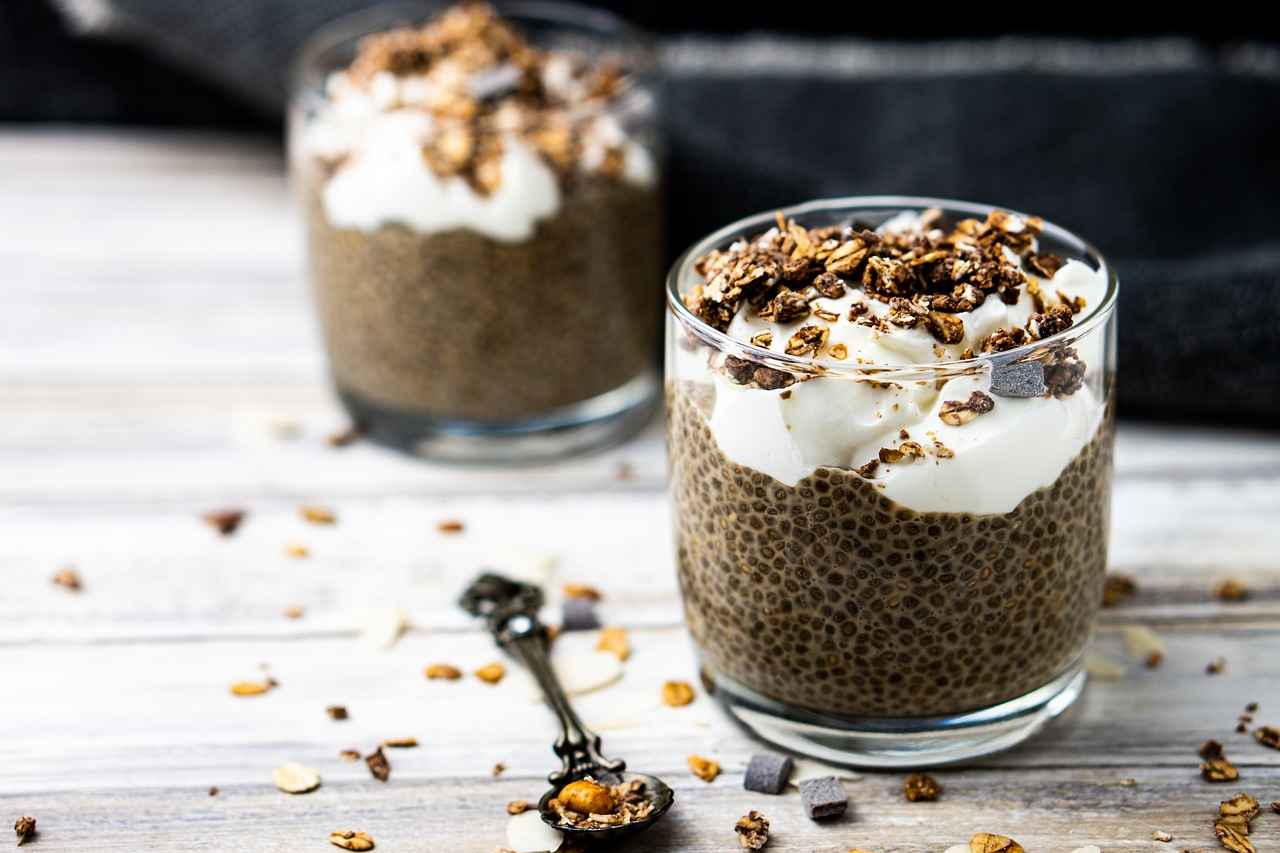
Are There Any Risks Associated with Chia Seeds?
Chia seeds have gained immense popularity for their numerous health benefits, but it’s crucial to understand that they are not without potential risks. In this section, we will explore the various risks associated with chia seeds, particularly focusing on digestive issues and other concerns that may arise from their consumption.
While chia seeds are packed with fiber, which aids in digestion, consuming them in excess can lead to digestive discomfort. The high fiber content can cause bloating, gas, and even constipation if not accompanied by adequate hydration. It’s essential to gradually introduce chia seeds into your diet, especially if you are not used to a high-fiber intake.
Chia seeds can absorb up to 12 times their weight in water. This property can be beneficial for hydration but can also pose a risk if the seeds are consumed dry. When chia seeds are ingested without sufficient liquid, they may expand in the digestive tract, leading to discomfort. Therefore, it is advisable to soak chia seeds in water or another liquid before consumption to mitigate these risks.
Though rare, some individuals may experience allergic reactions to chia seeds. Symptoms can include itching, swelling, or even more severe reactions in sensitive individuals. If you have a history of allergies to other seeds, it is prudent to consult a healthcare professional before adding chia seeds to your diet.
Chia seeds may interact with certain medications, particularly those related to blood pressure and blood thinners. The high omega-3 fatty acid content in chia seeds can have a blood-thinning effect, which could enhance the effects of anticoagulant medications. If you are taking such medications, consult your doctor to ensure that chia seeds are safe for you.
As with any food, moderation is essential. The general recommendation is to consume about 1-2 tablespoons of chia seeds per day. This amount allows you to enjoy the health benefits without overwhelming your digestive system. Listening to your body and adjusting your intake based on how you feel can help you avoid potential side effects.
Chia seeds can be a nutritious addition to your diet when consumed responsibly. By understanding the potential risks and taking appropriate precautions, you can enjoy their health benefits while minimizing discomfort. Always ensure you stay hydrated, introduce them gradually, and consult with a healthcare professional if you have any concerns about allergies or interactions with medications.
Potential Side Effects of Chia Seeds
Chia seeds have gained immense popularity as a health food, but like any other food, they come with potential side effects that consumers should be aware of. Understanding these risks is essential for anyone looking to incorporate chia seeds into their diet safely.
While chia seeds are generally safe for most people, some individuals may experience bloating or gas if they consume them without adequate hydration. This highlights the importance of proper preparation when adding chia seeds to your meals.
Chia seeds are known for their high fiber content, particularly soluble fiber. When chia seeds are mixed with liquid, they can absorb up to 12 times their weight in water, forming a gel-like substance. If consumed dry or without sufficient liquid, they may expand in the stomach, leading to discomfort, bloating, or gas.
- Hydrate Adequately: Always soak chia seeds in water or another liquid before consumption. A common ratio is 1 part chia seeds to 10 parts liquid.
- Gradual Introduction: If you are new to chia seeds, start with small amounts and gradually increase your intake to allow your digestive system to adjust.
- Monitor Your Body: Pay attention to how your body reacts after consuming chia seeds. If you notice discomfort, consider reducing the quantity or ensuring they are well-hydrated.
Although rare, some individuals may have allergic reactions to chia seeds. Symptoms can include skin rashes, itching, or gastrointestinal distress. Those with known seed allergies should exercise caution and consult with a healthcare provider before adding chia seeds to their diet.
In addition to digestive issues and allergies, excessive consumption of chia seeds can lead to other health concerns. Due to their high fiber content, consuming large quantities may result in diarrhea or other gastrointestinal disturbances. It’s crucial to consume chia seeds in moderation and as part of a balanced diet.
Individuals with certain medical conditions, such as those with a history of gastrointestinal blockage or those on blood-thinning medications, should consult a healthcare professional before incorporating chia seeds into their diet. The seeds’ ability to absorb water and expand could pose risks for some individuals.
Chia seeds offer numerous health benefits, but it is essential to be aware of their potential side effects. By ensuring proper hydration, introducing them gradually, and monitoring your body’s reactions, you can enjoy the many advantages of chia seeds while minimizing any adverse effects. Always consult a healthcare provider if you have concerns about allergies or specific health conditions.
Allergic Reactions and Precautions
Chia seeds have gained significant popularity due to their numerous health benefits, but it is crucial to recognize that they may not be suitable for everyone. One of the less commonly discussed aspects of chia seeds is the potential for allergic reactions. Understanding these risks is essential, especially for individuals with a history of seed allergies.
Chia seeds are derived from the Salvia hispanica plant, which is native to Central America. These tiny seeds are known for their impressive nutritional profile, including high levels of omega-3 fatty acids, fiber, and protein. However, like many other seeds, chia seeds can trigger allergic reactions in susceptible individuals. Allergies may arise due to the proteins present in the seeds, which can provoke an immune response in those who are sensitive.
Individuals with existing allergies to other seeds, such as sesame or sunflower seeds, may be at a higher risk of developing an allergy to chia seeds. It is advisable for these individuals to exercise caution when introducing chia seeds into their diet. Symptoms of an allergic reaction can vary and may include:
- Skin reactions: Hives, rash, or eczema
- Respiratory issues: Difficulty breathing or wheezing
- Gastrointestinal symptoms: Nausea, vomiting, or diarrhea
If you suspect that you may be allergic to chia seeds, it is important to consult with a healthcare professional for proper testing and diagnosis. They may recommend an allergy test to determine your sensitivity to chia seeds or other related allergens. Keeping a food diary can also help identify any adverse reactions you may experience after consuming chia seeds.
For those who are not allergic but still wish to include chia seeds in their diet, there are several precautions to consider:
- Start Small: If you are new to chia seeds, begin with a small quantity to see how your body reacts.
- Stay Hydrated: Chia seeds absorb a significant amount of water, so it is essential to drink plenty of fluids to prevent digestive discomfort.
- Consult a Doctor: If you have a history of food allergies, consult your healthcare provider before adding chia seeds to your diet.
In the event of an allergic reaction, it is crucial to act quickly. If you experience symptoms such as difficulty breathing or swelling of the face or throat, seek emergency medical attention immediately. For milder reactions, over-the-counter antihistamines may provide relief, but it is always best to consult a healthcare professional for advice.
While chia seeds offer numerous health benefits, it is vital to be aware of the potential for allergic reactions. By understanding the risks and taking appropriate precautions, you can safely enjoy the nutritional advantages of chia seeds without compromising your health.
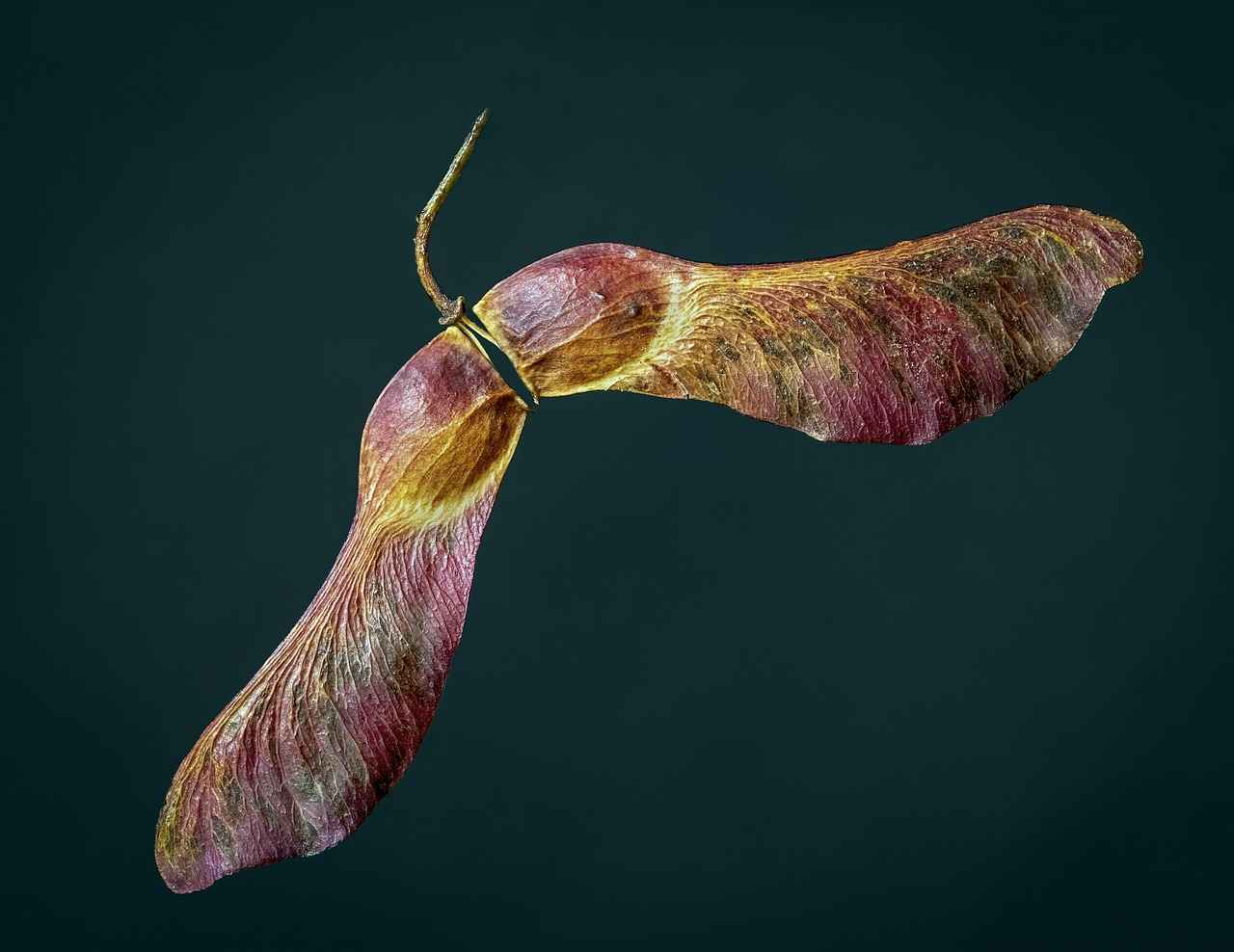
How to Incorporate Chia Seeds into Your Daily Routine?
Incorporating chia seeds into your daily diet can be both simple and enjoyable, allowing you to enhance your meals while reaping their numerous nutritional benefits. These tiny seeds are incredibly versatile and can be added to a variety of dishes, making them a perfect addition to any meal plan.
Chia seeds are not only rich in omega-3 fatty acids, fiber, and protein, but they also provide a wealth of vitamins and minerals. By adding them to your diet, you can improve your overall health and well-being. They are particularly beneficial for individuals looking to manage their weight, improve digestive health, and support heart health.
- Chia Pudding: One of the most popular ways to enjoy chia seeds is by making chia pudding. Simply mix chia seeds with your choice of milk (dairy or plant-based), add a sweetener like honey or maple syrup, and let it sit overnight in the refrigerator. In the morning, top it with fruits and nuts for a nutritious breakfast.
- Smoothies: Blend chia seeds into your favorite smoothies for an extra boost of nutrition. They can be added whole or ground, depending on your texture preference. This makes for a great post-workout drink.
- Salads: Sprinkle chia seeds over salads for added crunch and nutrition. They pair well with both leafy greens and grain-based salads, enhancing the overall flavor and texture.
- Baking: Incorporate chia seeds into your baking recipes. They can be added to muffins, bread, and energy bars, providing a nutritious punch without altering the taste.
- Soups and Stews: Add chia seeds to soups or stews for thickening and added nutrients. They absorb liquid and can help create a heartier texture.
Experimenting with chia seeds can lead to delicious discoveries. Here are a few creative recipes:
1. **Chia Seed Jam**: Combine mashed fruit with chia seeds and let it sit for a few hours. The seeds will absorb the liquid and create a jam-like consistency.2. **Chia Seed Energy Bites**: Mix chia seeds with oats, nut butter, and honey. Roll into balls and refrigerate for a quick snack.3. **Chia Seed Pancakes**: Add chia seeds to your pancake batter for added nutrition. They will provide a delightful texture and are a great way to start your day.
To maintain the freshness and nutritional value of chia seeds, store them in a cool, dry place, preferably in an airtight container. Keeping them away from sunlight will help prevent them from going rancid. If you buy in bulk, consider refrigerating or freezing them to extend their shelf life.
While chia seeds are packed with health benefits, moderation is key. A typical serving size is about 1-2 tablespoons per day. This amount provides a good balance of nutrients without overwhelming your digestive system.
Incorporating chia seeds into your daily routine can be a delightful journey, filled with various flavors and textures. By using these seeds creatively in your meals, you not only enhance your dishes but also enjoy the multitude of health benefits they offer.
Simple Recipes Using Chia Seeds
Chia seeds are incredibly versatile and can be easily incorporated into a variety of dishes, enhancing both flavor and nutritional value. From breakfast options to snacks and desserts, there are numerous ways to enjoy these tiny powerhouses. Here are some delicious recipes that showcase how simple it is to integrate chia seeds into your meals:
- Chia Pudding
This is a classic way to enjoy chia seeds. Combine 1/4 cup of chia seeds with 1 cup of almond milk (or any milk of your choice), and add a sweetener like honey or maple syrup. Stir well and refrigerate for at least 4 hours or overnight. Top with fruits, nuts, or granola before serving.
- Chia Seed Smoothie
Blend together 1 banana, 1 cup of spinach, 1 tablespoon of chia seeds, and 1 cup of coconut water for a refreshing and nutritious smoothie. This drink is packed with vitamins and provides a great energy boost!
- Chia Seed Jam
Make a quick and healthy jam by mashing 1 cup of fresh or frozen berries and mixing in 2 tablespoons of chia seeds and 1 tablespoon of honey. Let it sit for about 30 minutes to thicken. Spread it on toast or use it as a topping for yogurt.
- Chia Seed Energy Bites
Combine 1 cup of oats, 1/2 cup of nut butter, 1/4 cup of honey, and 1/4 cup of chia seeds. Mix well and form into small balls. Refrigerate for an hour for a perfect on-the-go snack!
- Chia Seed Salad Dressing
Create a nutritious dressing by whisking together 1/4 cup of olive oil, 2 tablespoons of apple cider vinegar, 1 tablespoon of chia seeds, and your choice of herbs and spices. This dressing adds a healthy twist to any salad.
These recipes not only make it easy to incorporate chia seeds into your diet but also provide a variety of flavors and textures to enjoy. Whether you prefer sweet or savory, there’s a chia seed recipe for everyone!
Don’t forget to experiment with different ingredients and find what works best for your taste buds. Chia seeds are not just nutritious; they also offer a fun and creative way to enhance your meals!
Tips for Storing Chia Seeds
Proper storage of chia seeds is crucial for preserving their freshness and maximizing their nutritional benefits. These tiny seeds are packed with essential nutrients, and improper storage can lead to spoilage and loss of their valuable properties. Here are some effective tips to ensure your chia seeds remain in optimal condition:
Chia seeds contain high levels of omega-3 fatty acids, which can become rancid if exposed to air, light, or heat. To maintain their nutritional value, it’s essential to store them correctly. Here are some guidelines:
- Keep Them Cool: Store chia seeds in a cool environment, ideally in a pantry or cupboard away from heat sources like stoves or ovens.
- Avoid Sunlight: Exposure to sunlight can degrade the quality of chia seeds. Use opaque containers to keep light out.
- Seal Tightly: Use airtight containers to prevent moisture and air from getting in. This helps maintain freshness and prevents clumping.
- Refrigeration: For long-term storage, consider keeping chia seeds in the refrigerator. This can extend their shelf life significantly.
When stored correctly, chia seeds can last for up to two years. However, it’s advisable to check for any off smells or changes in texture before use. If they smell rancid or have developed a strange taste, it’s best to discard them.
Yes, you can freeze chia seeds to extend their shelf life even further. Just ensure they are in a sealed container to prevent moisture absorption. When ready to use, there’s no need to thaw them; simply add them directly to your recipes.
Choosing the right container is vital for proper storage. Here are some recommendations:
- Glass Jars: Glass containers are excellent for storing chia seeds as they are non-reactive and airtight.
- Plastic Containers: If using plastic, opt for BPA-free containers to avoid chemical leaching.
- Vacuum-Sealed Bags: For those who buy in bulk, vacuum-sealed bags can help keep chia seeds fresh for an extended period.
Buying chia seeds in bulk can be cost-effective, but it’s essential to consider storage. Ensure you have a proper storage plan in place to avoid spoilage. If you consume chia seeds regularly, bulk buying can be a smart choice.
In summary, proper storage of chia seeds is essential for maintaining their freshness and nutritional value. By following these tips, you can enjoy the numerous health benefits of chia seeds for a long time. Remember to keep them in a cool, dry place, away from sunlight, and use airtight containers to protect them from moisture and air exposure.
Frequently Asked Questions
- What are the health benefits of chia seeds?
Chia seeds are packed with omega-3 fatty acids, fiber, protein, and antioxidants. They can boost heart health, aid in weight loss, and support digestive health, making them a fantastic addition to any diet.
- How can I incorporate chia seeds into my meals?
You can sprinkle chia seeds on salads, blend them into smoothies, or use them in baking. They can also be soaked in water or milk to create a delicious chia pudding!
- Are there any side effects of consuming chia seeds?
While chia seeds are generally safe, some people may experience digestive issues like bloating if consumed without enough water. It’s crucial to stay hydrated!
- How should I store chia seeds?
To maintain their freshness, store chia seeds in a cool, dry place away from sunlight. A sealed container in the pantry works great!
- Can chia seeds help with weight loss?
Absolutely! The high fiber content in chia seeds helps you feel full longer, which can lead to reduced calorie intake and support weight management.











